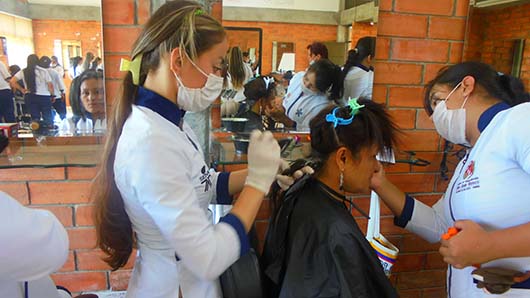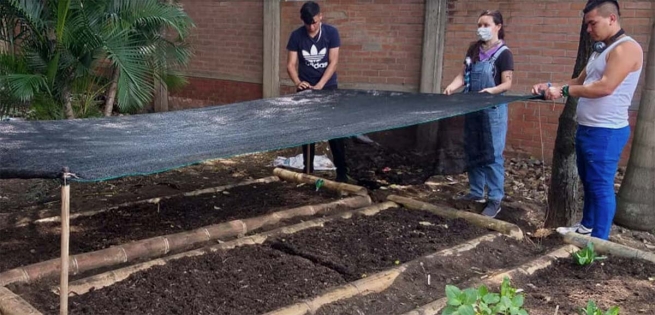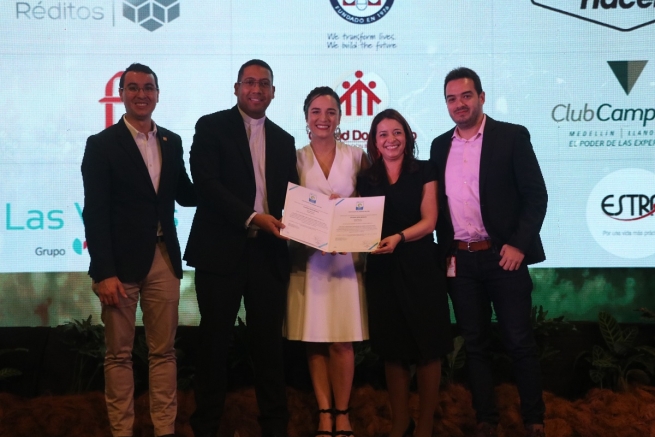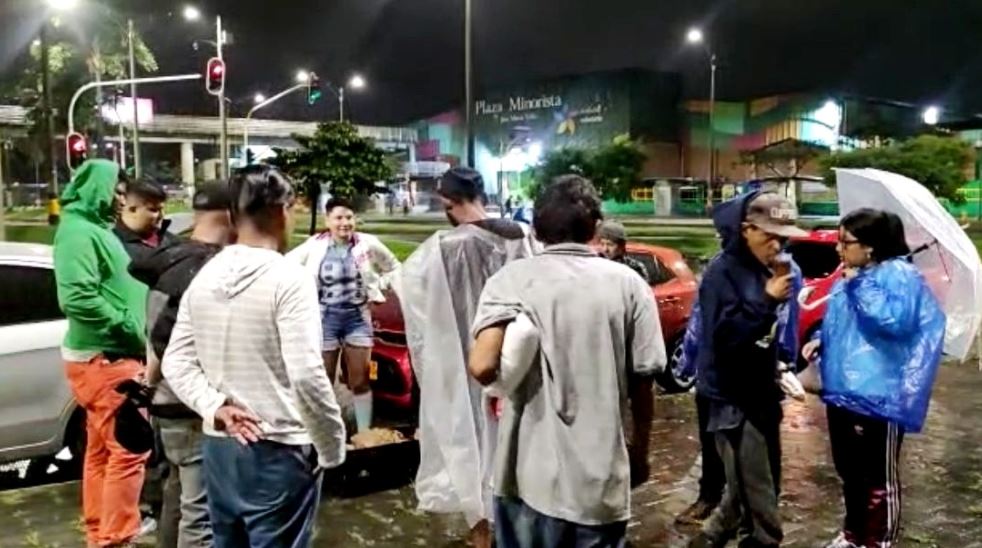COLOMBIA: More than 250 Students Graduate from New Don Bosco Training Center

(MissionNewswire) More than 250 students have graduated from the new Don Bosco Training Center in Armenia, a city in central Colombia. Salesian missionaries have been working in the city since 1999 and last year opened the new training center to provide education and workforce development services to poor youth in the area.
Known as the “coffee belt” of Colombia, the region has more than half its population under 25 years of age. Unemployment, especially for youth, is commonplace because of a lack of industry in the region. The city of Armenia, largely supported by tourism, has a high rate of prostitution, drugs and other crime and young people are particularly vulnerable because of a lack of educational opportunities.
The Don Bosco Training Center is already making a difference in the lives of its graduates. Carol Tatiana Cuervo, age 22, entered the cosmetology program at the Center after overcoming some personal challenges. She received her certification to work as a hairdresser and has already found employment.
“Youth in Colombia struggle to gain an education and lead productive lives,” says Father Mark Hyde, executive director of Salesian Missions, the U.S. development arm of the Salesians of Don Bosco. “Because of conditions of poverty in the city of Armenia, youth are vulnerable to exploitation and criminal activity. Education provides a path out of poverty and helps youth gain the jobs skills necessary to find meaningfully livable wage employment.”
The Center was made possible through the financial support of the Leopold Bachmann Foundation and the Salesian NGO, Jugendhilfe Weltweit in Switzerland. The Municipality of Armenia provided the land where the Center resides.
The first phase of the Center’s construction was completed in November and includes classrooms, a library, a sports field and administrative space for staff. Technical courses are currently being offered in the areas of tourism, culinary arts, accounting, information technology, cosmetology, mechanics and welding.
Planning and fundraising is already underway for a second phase of construction. Once construction is completed, additional programs will be offered in electrical work, tailoring, graphic design, cabinet making and handcrafting in Guadua – a special type of bamboo which is plentiful in the area and has high market demand. Training programs have received certification and are recognized by the National Apprenticeship Service, the state body that certifies the skills acquired in the various fields of vocational training in Colombia.
“There are six new laboratories planned to offer additional training opportunities and work for young people,” says Father Jairo Gallo, director of the Don Bosco Training Center. “We always take into account the labor market and direct our training towards the needs of the business community and those industries where our students are likely to find work.”
Close to 33 percent of Colombians live in poverty, according to the World Bank. One in five children in the country have no access to education and 800,000 children reside in refugee camps. The number of street children has reached epidemic proportions and thousands of at-risk youth have been recruited as child soldiers.
Many orphaned youth in Colombia live in poverty and have lost their parents to natural disasters, the HIV/AIDS epidemic and other diseases, war or domestic issues. Some children remain living with a single parent, struggling to survive and are often pulled out of school to earn income for the remaining family. Other youth live in shelters or on the streets.
###
Sources:
ANS – Colombia – “Opportunities to get a decent job, for young people and their families”
World Bank – Colombia
Salesian Missions – Colombia




